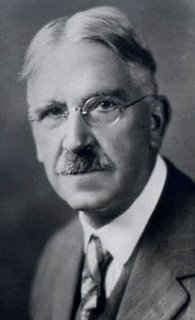When the world was proved to be flat by Christopher Columbus it marked the beginning of a change of 'mindset' that forever changed the world. Columbus was aware ( although his crew weren't)of the theories of Galileo who used his telescope to prove ideas thought out earlier by Copernicus.
This new 'mindset' , or 'world view', unleashed the creative scientific and artistic energy we now call the Renaissance. An important aspect was the spreading of ideas due to Gutenberg's invention of the printing press ;which in turn, shifted power away from the Church.
In his book, 'The World is Flat' , Thomas Friedman shares how the convergence and explosion of new communication technologies and globalisation has 'flattened' the world allowing anybody, anywhere, to be connected anytime, with growing efficiency and speed. Others have called this convergence the beginning of the 'Second Renaissance' while others call it the 'Age Of Creativity or Talent'.
The world has moved into what Friedman calls 'Globalisation 3' - globalization that provides new power for individuals to collaborate and compete globally. The new technologies are a new equalizer and as a result new countries are now competing for centre stage , China and increasingly India , are 'racing to the top'.
For the western world to thrive it will need to compete on creativity, uniqueness and difference as most services can be provided more cheaply in other parts of the world. Today students no longer compete for jobs with their classmates but with the best of students from such populated and ambitious countries as China and India.
Most of these changes have happened in the last few years! The last 25 year have been 'a warm up' Friedman writes - 'the real IT revolution has just begun'. For example Friedman's book is a second edition - the first was published in 2005 and in his second edition Friedman includes new ideas about education.
Countries who want to compete need to part of the next creative wave and they can only do this by creating conditions and an education system to tap into the talent of all their students.Friedman writes that, 'natural talent trumps geography' .'The only limiting factor, he writes, 'will be human imagination'.
This is both a change an an opportunity for such a country as New Zealand. This ideas underpins our 'new' draft New Zealand Curriculum with it's emphasis on Key Competencies, or attributes, all citizens will need to be able to create their own knowledge. Education, Friedman writes, will have to change dramatically as our schools are still locked into earlier Industrial Aged assumptions. We now need to encourage collaboration, creativity and innovation and an education 'customised' to suit each learners particular talent mix.
In flattened world' you do not want to be mediocre ( as an individual or a country), or lack passion, in what you do - the future will belong to the best, the smartest, the most distinctive and productive.
Friedman outlines future job skills to be successful.They provide a general list of what sort of things people need to do that jobs will grow out of.
Successful people will have to be:
1 Great collaborators and orchestrators who can mobilize and inspire diverse groups of people.
2 Great explainers who can synthesize complexity to assist people sort out their processes and systems
3 Great leveragers .People who can see a problem and fix and then redesign it so it can be applied by others. There are people who can see the 'big picture' - how things work from beginning to end.
4 Great adapters. These people Friedman calls 'versatilists' who are capable of constantly adapting, learning and growing. They combine the skills of 'narrow specialists' and 'shallow generalists' both of who will find the future problematic. Friedman compares then to Swiss Army knives - prepared for any eventuality.
5 Green people. There will be a lot of jobs ( a 'biological Renaissance') to ensure world environmental sustainability and the development of renewable resources
6 The passionate personalizers who can survive by doing ordinary jobs in passionate way - providing the personal touch particularly as success in providing services will depend on differentiation.
7 Great localizers. With new technology small businesses can cut costs and do more innovation and tailor them to local needs customizing serves to particular clients and employing people in the process.
The above are all broad categories but they provide an indication of the 'competencies ' people will need.
In the future, Friedman writes, 'how we educate our students may prove to be more important than how much we educate them'. Most important, he writes, is to 'learn how to learn'. To constantly absorb and teach yourself new ways of doing things. Friedman believes in the CQ+PQ+IQ ( Curiosity quotient plus Passion quotient plus Intelligence quotient). Successful students will be passionate to learn - 'nobody', Friedman writes, 'works harder than a
curious kid.'
His advice to students is to do what you love - this is the best survival strategy.
The Information Age is giving away to the Talent Age.













